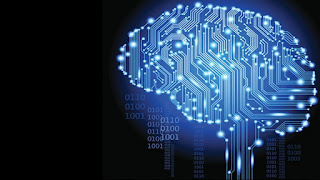The Use of Artificial Intelligence in Mental Health
Mental health is a critical issue that affects people of all ages and backgrounds. Artificial intelligence (AI) has the potential to revolutionize the field of mental health, providing new and innovative solutions to improve diagnosis, treatment, and overall care. From chatbots to virtual reality, AI is being used to automate and improve various processes within the field of mental health.
One of the most significant ways in which AI is being used in mental health is through the use of natural language processing (NLP) and machine learning (ML) for mental health assessment and diagnosis. NLP is a subfield of AI that enables computers to understand and generate human language. This makes it possible to analyze large amounts of data, such as speech and text, to identify patterns and trends in mental health. ML is a subfield of AI that enables computers to learn from data, without being explicitly programmed. This makes it possible to predict the likelihood of a mental disorder, such as depression or anxiety, based on factors such as speech patterns, and text. This can help mental health professionals to identify mental health issues more quickly and accurately, which can improve the overall care for patients.
Another important way in which AI is impacting mental health is through the use of chatbots and virtual reality. Chatbots are AI-powered systems that can interact with users through natural language, and can provide mental health support and resources. Virtual reality, on the other hand, can be used to create immersive and interactive experiences that can help to alleviate symptoms of mental health disorders such as nxiety and PTSD. For example, virtual reality can be used to simulate exposure therapy, which can help individuals with phobias or anxiety disorders to face their fears in a controlled environment. Additionally, virtual reality can also be used to provide virtual support groups, which can help individuals who may have difficulty accessing in-person support groups.
AI is also being used to improve the efficiency and performance of mental health research and treatment. For example, AI-powered systems can be used to analyze large amounts of data from clinical trials, which can help to identify patterns and trends in mental health. Additionally, AI can be used to optimize the delivery of mental health services, such as predicting which patients are at risk of relapse and providing tailored interventions.
Moreover, AI is also being used to improve the accessibility of mental health services. Chatbots, for example, can be used to provide mental health support and resources to individuals in remote or underserved areas. Additionally, AI-powered virtual therapists can be used to provide mental health services to individuals who may have difficulty accessing in-person therapy.
In conclusion, AI is playing an increasingly important role in the field of mental health, with the potential to revolutionize the way mental health is diagnosed, treated, and supported. From chatbots to virtual reality, AI is being used to automate and improve various processes within the field of mental health. Additionally, AI is also being used to improve the efficiency and performance of mental health research and treatment, as well as to improve the accessibility of mental health services. As the field of AI continues to advance, it is likely that we will see even more applications of this technology in the field of mental health in the future.




Comments
Post a Comment